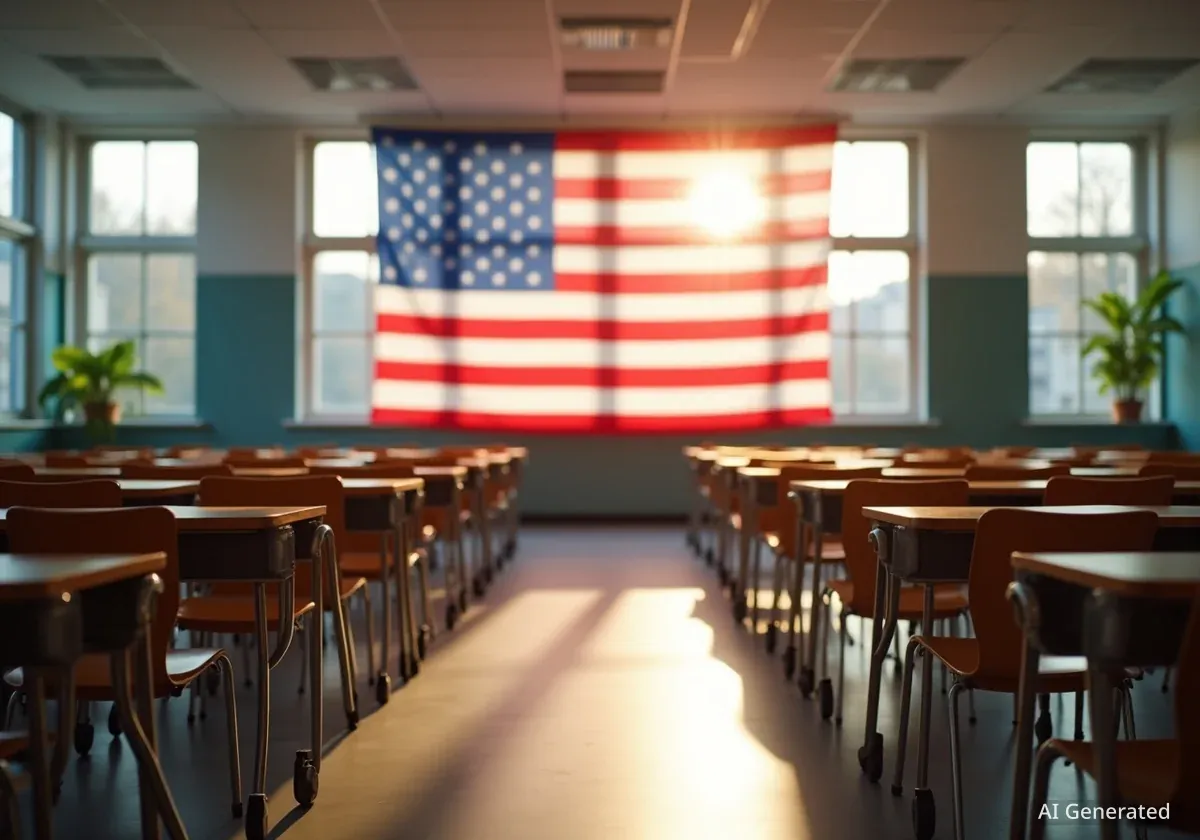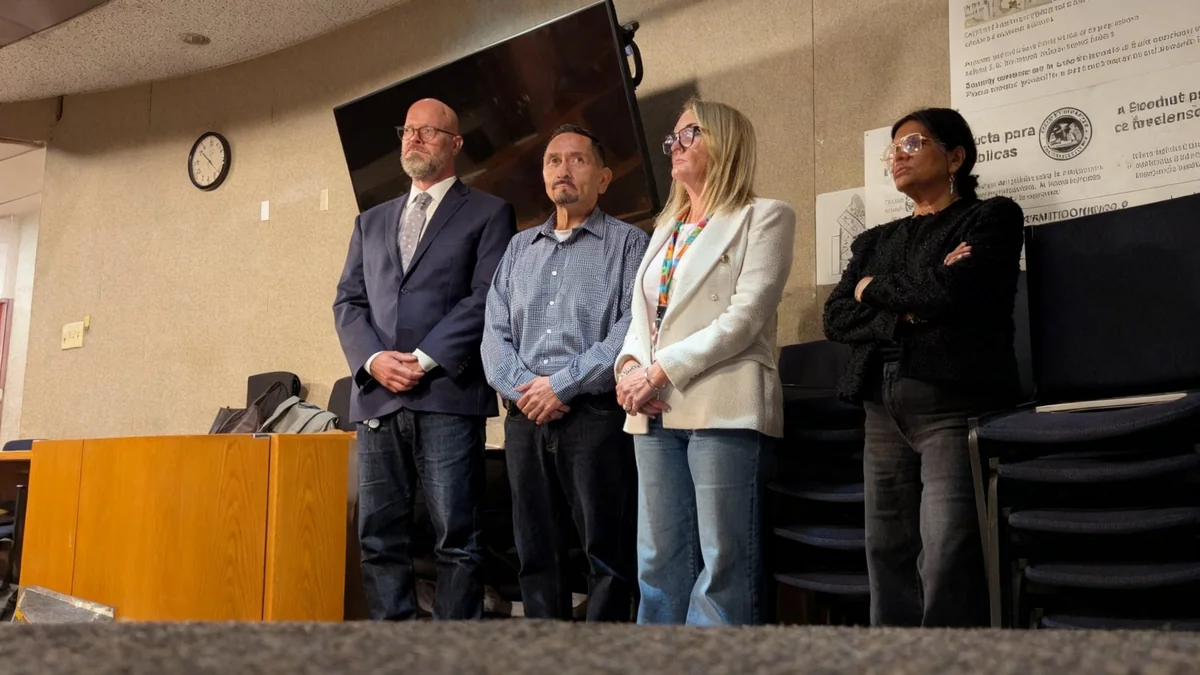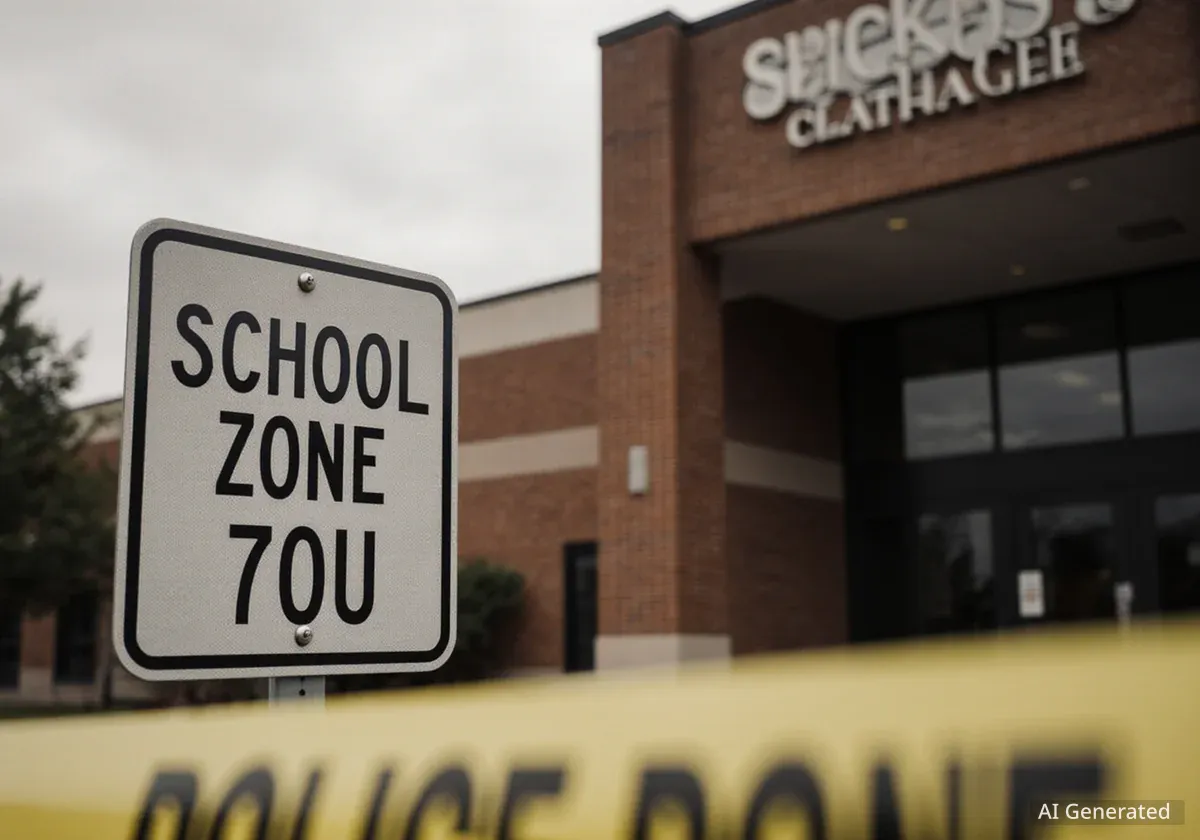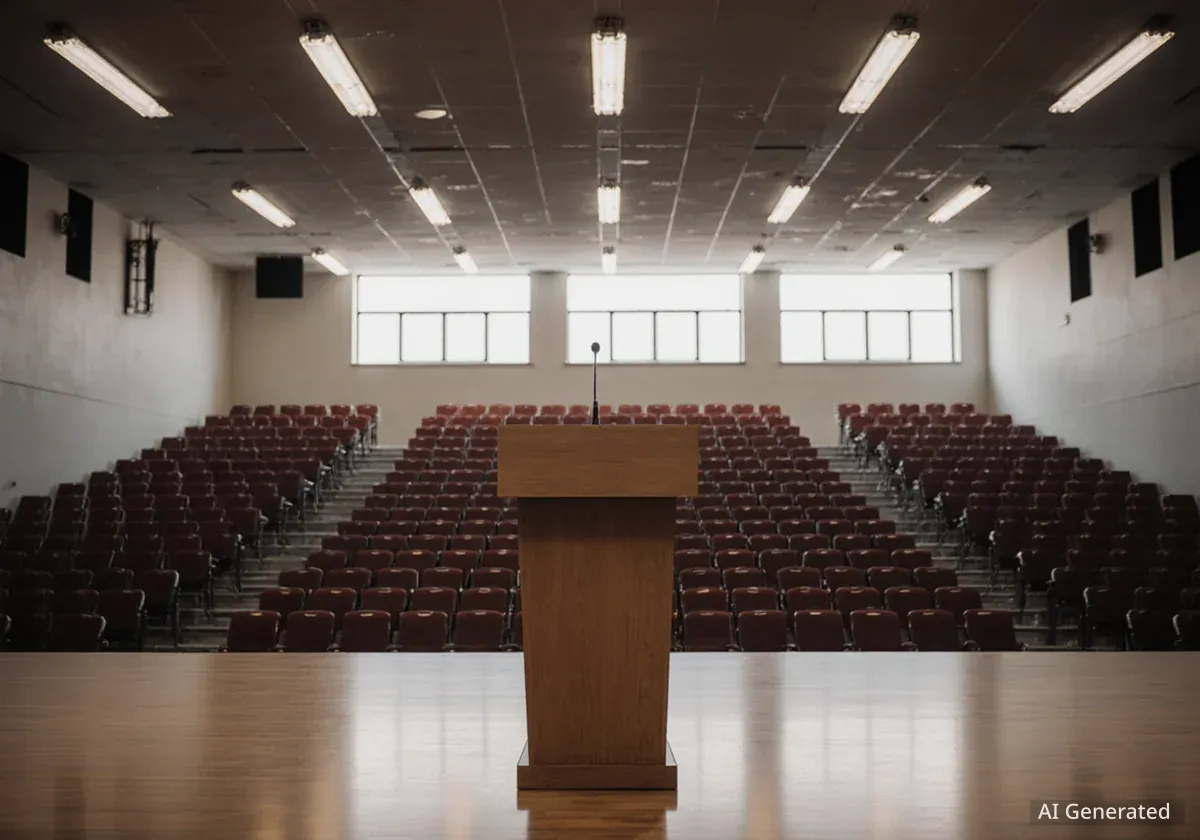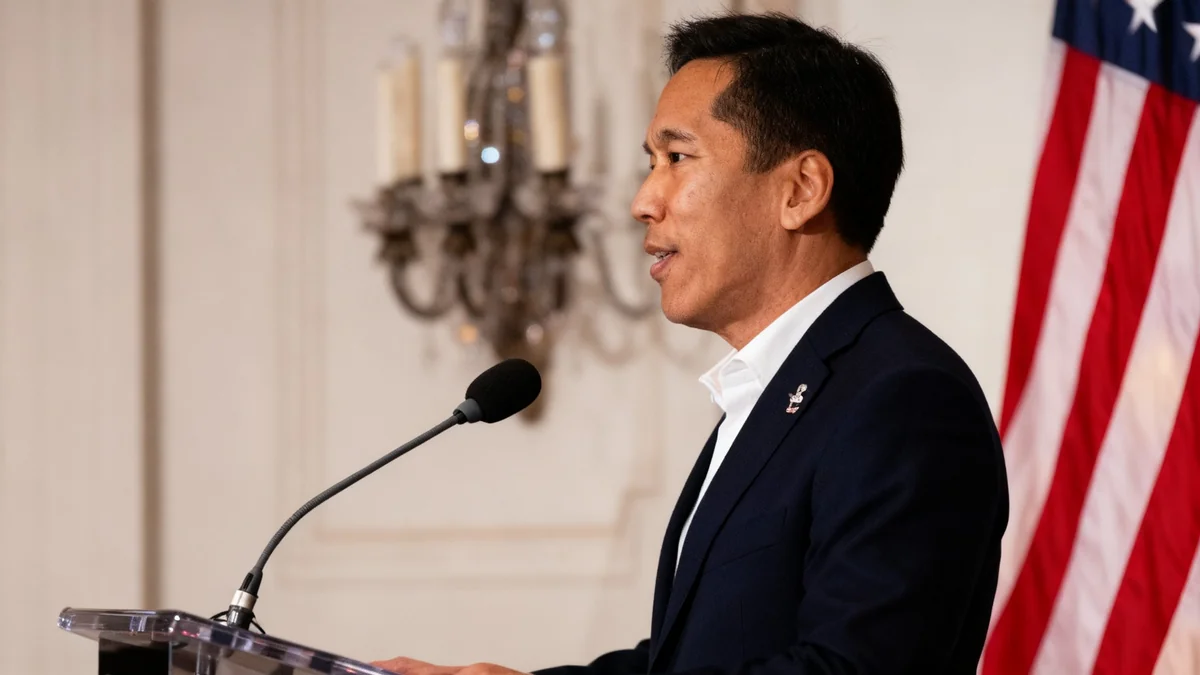The U.S. Department of Education has proposed a new priority for discretionary grants that would favor programs promoting "patriotic education." The initiative, announced by Education Secretary Linda McMahon, aims to shape how American history and civics are taught in preparation for the nation's 250th anniversary in 2026.
This move has drawn criticism from historians who argue it promotes a sanitized version of the nation's past. The proposal is currently open for public comment until October 17.
Key Takeaways
- The Education Department wants to prioritize grant funding for programs that promote "patriotic education."
- This priority would affect discretionary grants available to educational institutions, including colleges and universities.
- The department also launched a coalition of 40 conservative groups to advance these civic education initiatives.
- Historians and academic organizations have criticized the proposal, calling it a politically motivated effort to control historical narratives.
Details of the Proposed Grant Priority
The new proposal was outlined by Education Secretary Linda McMahon, who stated its goal is to foster a greater appreciation for the country's founding principles. The department seeks to direct grant funds toward programs that cultivate what it calls "citizen competency and informed patriotism."
According to the official proposal, "patriotic education" is defined as a presentation of American history that is "grounded in an accurate, honest, unifying, inspiring, and ennobling characterization of the American founding and foundational principles."
The proposal also emphasizes examining "how the United States has admirably grown closer to its noble principles throughout its history" and advancing the idea that "commitment to America’s aspirations is beneficial and justified."
Other Department Priorities
This new focus on patriotic education joins several other priorities for the department's grant funding. These include evidence-based literacy programs, expanding education choice, returning more control over education to states, and advancing the use of artificial intelligence in educational settings.
A Coalition for Civic Renewal
In conjunction with the grant proposal, the Education Department announced the formation of the America 250 Civics Education Coalition. This group consists of 40 organizations tasked with developing initiatives to "renew patriotism" ahead of the nation's semiquincentennial.
Prominent members of this coalition include The Heritage Foundation, Turning Point USA, Hillsdale College, and the American First Policy Institute. Secretary McMahon previously served as the chair of the American First Policy Institute before her appointment.
"It is time to repeat his work and the work of Jefferson and the Founders. We will work together to learn those principles, and for the love of them we will have a grand celebration," said Hillsdale College president Larry Arnn in a statement about the coalition's goals.
Funding and Focus
The department recently awarded $160 million in American history and civics grants for seminars aimed at K-12 educators and students. These grants are tied to the upcoming anniversary of the Declaration of Independence.
Priority for these funds was given to institutions with academic units focused on areas described as "civic thought, constitutional studies, American history, leadership, and economic liberty." Critics have noted that such centers are often associated with conservative viewpoints.
Criticism from the Historical Community
The proposal has been met with significant opposition from professional historians and academic groups. They argue that the initiative is an attempt to present an oversimplified and politically biased version of American history.
Sarah Weicksel, the executive director of the American Historical Association, described the department's approach as having a "narrow conception of patriotism and patriotic education."
She pointed to the broader context of the administration's actions, which she believes are aimed at downplaying difficult aspects of U.S. history, such as slavery and systemic discrimination. "That context tells us that the administration is interested in telling an uncomplicated celebration of American greatness," Weicksel said.
A Preceding Executive Order
In March, the administration issued an executive order titled "Restoring Truth and Sanity to American History." This order prohibited federal funding for exhibits or programs that, in its view, "degrade shared American values." This led to a review of exhibits at the Smithsonian Institution and the National Park Service.
Concerns Over Political Influence
David Blight, a professor of history and Black studies at Yale University, labeled the department's emphasis on patriotic education as "pure politics." He expressed concern that the government was attempting to act as a "truth ministry."
"It’s the politics of trying to use history to control people, including children, young people, the people who teach it, the people who write curriculum and the state legislatures that will design this stuff," Blight stated.
Blight noted that while there have been past movements to control historical narratives, the current effort is unique. "We’ve never had this come right from the White House, with the power of the executive branch and their control over so much money," he explained.
Justification and Department's Stance
Secretary McMahon defended the initiative at a recent event hosted by the Federalist Society and the Defense of Freedom Institute. She cited a statistic indicating that only 41 percent of young people report that they love America.
"Why don’t they love America? Why aren’t they proud to be Americans? It’s because they don’t know America," McMahon remarked. "They don’t know the foundations, they don’t know the real history of our country."
While acknowledging that the federal government cannot directly set school curricula, McMahon emphasized that it can use its funding power to influence the types of educational programs that are developed and promoted. She stressed the importance of teaching respect for the flag and the country.
The debate highlights a fundamental disagreement over the purpose of history and civics education: whether its primary role is to instill patriotism or to provide a critical and comprehensive understanding of the nation's complex past.
